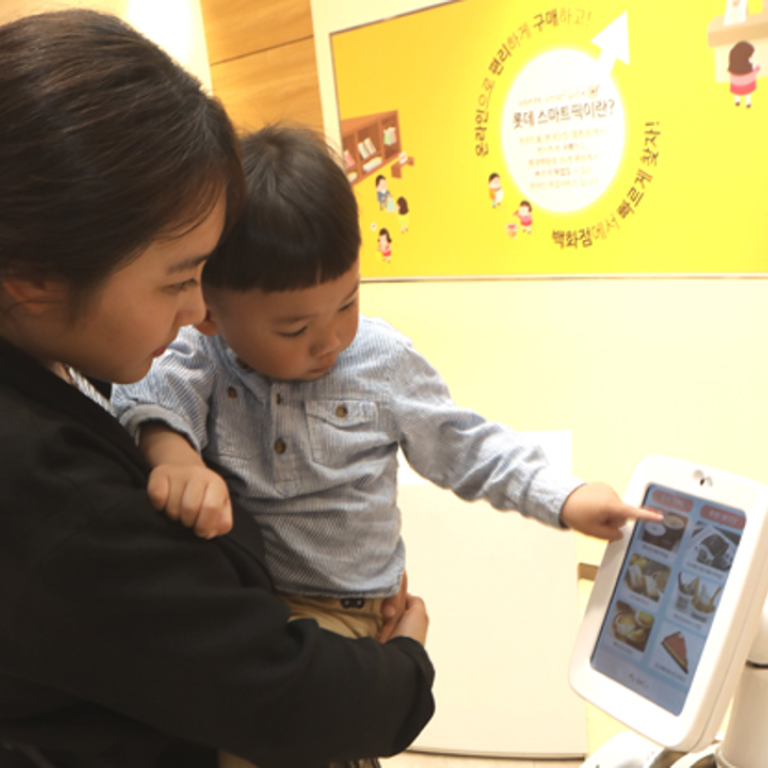
Concierge robots begin working in shopping centres
Artificial intelligence is now breaking into the hospitality segment in South Korea, with more developments to come
By Park Jae-hyuk
Robots, which were once used only in massive manufacturing plants with automated assembly lines, have come closer to our daily lives to enable new possibilities in the services industry.
According to industry officials, Tuesday, rapid-growing robotics technology in various fields has already broken time-honoured beliefs that there are human-only abilities like hospitality for customers.
Earlier this week, Lotte Department Store began to operate a concierge robot called elBot for shoppers at its main branch in Seoul. The first concierge robot in Korea offers various services such as recommending restaurants and locating shops in the outlet.
elBot can also enable visual communication between foreign customers and department store staff who can speak English, Japanese and Chinese. If customers want to get services in a foreign language, they just need to tap on the robot.
The robot will feature an artificial intelligence (AI)-based conversation function in the near future, the Seoul-based department store said.
“We adopted the concierge robot to offer pleasure and convenience to our customers,” a Lotte Department Store official said. “We plan to develop further services using information and communication technologies to provide additional pleasure to shoppers.”
At a whisky bar in Gangnam, Seoul, a bartender robot named Cabo also serves customers, carving cubic ice into round ice and speaking short sentences.
Although the 200 million won (US$177,000) robot can only do simple tasks for now, the manufacturer of Cabo is seeking to create the next generation Cabo based on AI technology, so that the robot can recommend drinks and have conversations with customers.
South Korea has been one of the global powerhouses in humanoid technology with such pioneers as Professor Oh Jun-ho of the Korea Advanced Institute of Science and Technology taking the lead. His team developed the humanoid Hubo to compete with its global peers.
However, Korea has lagged behind in developing AI technologies for some reason. The country has put forth efforts to catch up with AI powerhouses including the United States. But a lack of funding and experts drag on Asia’s Number four economy and keep it from moving forward in the promising segment.
In Japan, an android called Pepper ushers visitors into a sushi restaurant, while a barista robot named Gordon offers coffee at an unmanned cafe in San Francisco, although both of them are still at the elementary level.
But people are wary of losing their jobs due to the development of robots. According to researchers at the Massachusetts Institute of Technology, robots will remove five jobs in the not-so-distant future. Also, some critics point out that the use of robots may lead to a decrease in people’s salaries.
The Financial Times and Nikkei studied 820 jobs composed of slightly higher than 2,000 tasks. They expected that robots will take charge of around a third of the tasks without the help of a person.
In particular, robots can do tasks related to ophthalmology, food processing, masonry and painting. Most tasks related to assembling, transportation and simple office work can also be done by robots, according to the research. However, robots can do only 22 per cent of the tasks of CEOs and 17 per cent of the work of artists.

